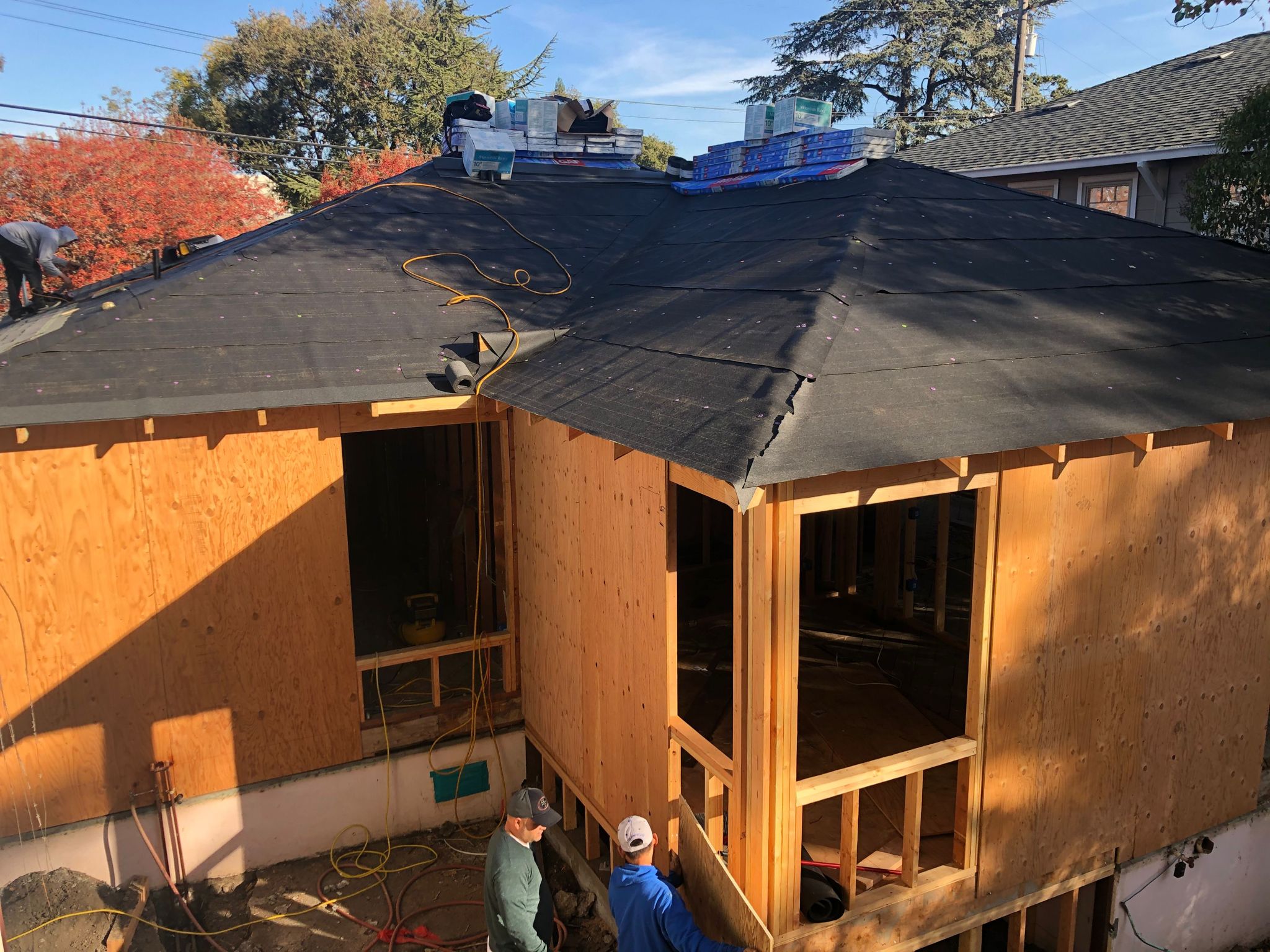If you’ve thought about adding an Accessory Dwelling Unit (ADU) to your property then you’ve probably considered the best way to go about it. ADUs are often smart investments, and provide additional space for family, possible rental income, or even a personal office. However, with the rising costs and complexities of traditional construction, many homeowners are turning to prefabricated ADUs as an efficient, cost-effective solution. Prefabricated ADUs are built off-site, reducing construction time and minimizing disruptions to your property, while still offering high-quality, versatile living spaces.
In this guide, we’ll explore everything you need to know about prefabricated ADUs, from their unique benefits to design options, installation processes, and how they can be the ideal solution for adding functional, stylish, and valuable space to your home. Whether you’re seeking an affordable way to enhance your property or aiming to maximize your lot’s potential, prefabricated ADUs are a practical and modern approach to expanding your living space.
What is a Prefabricated ADU?
A prefabricated ADU, often referred to as a prefab ADU, is a secondary housing unit built off-site in a factory setting and then transported to its final location for assembly and installation. These units come in various sizes and designs, from small studio layouts to larger one or two-bedroom options, offering homeowners flexibility in style and functionality. Prefabricated ADUs are typically constructed using high-quality, durable materials designed to withstand transportation and installation, and they comply with local building codes and zoning requirements.
Unlike traditional ADUs, which are built on-site from the ground up, prefab ADUs are created in a controlled environment, which can result in higher quality and more efficient construction processes. This approach significantly reduces both construction time and the number of on-site disruptions, making it an appealing choice for homeowners seeking quick, cost-effective solutions. Additionally, prefabricated ADUs can come as modular units, which are delivered in pieces to be assembled on-site, or as fully completed units that require minimal on-site assembly.

Parking Requirements for Tiny House Additions in the Bay Area
Parking regulations can significantly affect the feasibility of adding a tiny house to your property, especially in densely populated Bay Area cities where space is already at a premium. Depending on where you live, parking requirements for tiny house additions can range from minimal to highly restrictive.
Types of Prefabricated ADUs
There are many different types of prefabricated ADUs to suit differing property layouts, design preferences, and functional needs. Here are some common types of prefabricated ADUs available to homeowners:
Modular ADUs
Modular ADUs are constructed in sections or “modules” in a factory setting, with each module built to specific dimensions that can be combined to create a full structure. Once complete, these modules are transported to the site and assembled, often onto a pre-laid foundation. Modular ADUs are popular because they offer flexibility in design and size, ranging from compact studios to larger units with multiple rooms. They also tend to have a high degree of structural stability due to their segmented construction.
Panelized ADUs
Panelized ADUs are built in sections but focus on pre-made panels rather than complete modules. The walls, roof, and floor panels are manufactured off-site and then delivered and assembled on the property. This approach allows for more customization than modular units and can be easier to transport to hard-to-reach areas. Panelized ADUs offer a balance between efficiency and flexibility, making them an ideal choice for homeowners who want some customization without a fully site-built project.
Kit ADUs
Kit ADUs provide all the materials and instructions needed for a “DIY” approach, allowing homeowners to either assemble the unit themselves or hire a contractor to do so. These kits are often more affordable than other prefab options and allow homeowners flexibility in assembly. Kit ADUs are ideal for smaller units, such as single-room studios or office spaces, and are often chosen for their simplicity and lower costs. However, they require more on-site labor and assembly time than fully pre-built options.
Fully Finished Prefabricated ADUs
Fully finished prefabricated ADUs are delivered to the property in near-complete form, with plumbing, electrical, and interior finishes already installed. Once they arrive on-site, they are simply connected to utility lines and anchored to the foundation. This type is ideal for homeowners seeking minimal disruption on-site and offers a fast installation process. Fully finished units are available in a range of designs and layouts, from single-room studios to one-bedroom apartments.
Hybrid Prefabricated ADUs
Hybrid ADUs combine elements of both prefab and traditional construction. For instance, a hybrid ADU might include a panelized shell that is assembled on-site but allows for custom interior work tailored to the homeowner’s specifications. This type offers the efficiency of prefabrication along with the personalization potential of site-built construction, allowing homeowners to make modifications during the build.
Design and Layout Options for Prefabricated ADUs
Now, if design, layout, and aesthetics are something that’s important to you, then you may be surprised to learn how much flexibility prefabricated ADUs offer in these areas. While these units are built off-site, manufacturers often provide a variety of design options that cater to different styles and functional requirements. Here are some of the key design and layout options available for prefabricated ADUs:
Cost Breakdown for Prefabricated ADUs
Building a prefabricated ADU can be an affordable alternative to traditional construction, yet it still requires a significant financial investment. Understanding the costs can help homeowners budget effectively and choose a solution that aligns with their financial goals. Here’s a closer look at the typical costs associated with prefabricated ADUs:
Base Unit Costs
The base cost of a prefabricated ADU includes the price of the unit itself, which generally ranges from $50,000 to $150,000 depending on size, layout, and materials. Smaller, studio-style ADUs with basic finishes will fall on the lower end of this range, while larger units with multiple rooms, custom finishes, or additional amenities will increase the overall cost.
Site Preparation and Foundation
Preparing the site for a prefabricated ADU includes leveling the ground, laying a foundation, and addressing any necessary excavation. Typical foundation options include slab, crawl space, or pier foundations. Depending on the property and soil conditions, foundation and site preparation costs can range from $5,000 to $20,000.
Utility Connections
Connecting the ADU to utilities—such as water, sewer, gas, and electricity—is essential and can vary widely in cost based on proximity to existing lines and any required upgrades. Utility connections often add an additional $5,000 to $15,000 to the project budget, depending on local requirements and the complexity of the setup.
Permit Fees and Inspection Costs
Permits are mandatory for any ADU construction, covering building, plumbing, and electrical work. Permit fees can range from $3,000 to $10,000, depending on the city or county regulations and the scope of the project. Inspections throughout the installation process ensure code compliance and may incur additional fees.
Delivery and Installation
Transporting a prefabricated ADU to the site and installing it onto the foundation are obviously necessary steps that may cost anywhere from $5,000 to $10,000. These costs include logistics, transport permits, and labor to secure the unit in place. For larger ADUs or units with multiple components, installation costs could be slightly higher.
Interior Finishes and Customization
Many prefabricated ADU manufacturers offer customization options, including flooring, cabinetry, countertops, and fixtures. Homeowners who choose higher-end finishes or add optional upgrades, such as smart home features or eco-friendly materials, may see the total cost increase by an additional $10,000 to $30,000.
Landscaping and Exterior Features
After the ADU is installed, homeowners may wish to enhance the surrounding landscape to integrate the new structure with the existing property. Landscaping, driveways, walkways, and outdoor features like decks or patios can cost between $2,000 and $15,000, depending on the extent of the work.
Total Cost Estimate
When considering the full range of costs, a prefabricated ADU generally costs between $80,000 and $250,000. This total includes the unit, site work, utility connections, and optional customization or landscaping. The final price will depend on the specific unit chosen, local regulations, and any upgrades or additions.
California-Specific Regulations and Considerations
In California, specific regulations govern the construction of ADUs, aimed at addressing the state’s housing shortage while ensuring safety and accessibility. These rules, including Senate Bill 9 and updates to ADU laws, streamline the approval process, allowing more homeowners to add ADUs without excessive permitting hurdles. California mandates compliance with zoning laws, setbacks, and size limitations, which vary by municipality, so understanding these local requirements is essential for a successful build. Additionally, incentives such as fee reductions and certain financing options make ADU construction more attainable. For an in-depth look at California’s ADU regulations and tips on navigating the approval process, check out our comprehensive guide on ADU regulations in California.
Prefabricated ADUs vs. Traditional On-Site ADUs:A Comparison
Prefabricated ADUs and traditional on-site ADUs each offer unique advantages, catering to different homeowner needs and project goals. Prefabricated ADUs are factory-built and arrive nearly complete, reducing on-site construction time significantly. This controlled environment often results in fewer delays and a lower cost, making prefabricated ADUs a more efficient option for those looking to save on both time and budget. Additionally, prefab units are typically designed to meet local codes, streamlining the permitting process and minimizing unexpected costs associated with custom builds.
On the other hand, traditional on-site ADUs, or custom-built ADUs, provide complete flexibility in design and layout, allowing homeowners to match their unit to the existing home’s architectural style or specific site needs. While custom builds can be more time-intensive and costly due to labor and material expenses, they offer a tailored approach for homeowners seeking a highly personalized addition to their property. Each option has distinct pros and cons, so understanding these differences can help you decide which approach best fits your vision and budget. For more details on custom ADU construction, including design tips and cost insights, explore our comprehensive guide to custom-built ADUs.
Plan Your Prefabricated ADU Today!
A prefabricated ADU might be a great solution for you and your property as it’s a practical and innovative solution to expand living space, increase property value, and offer versatile housing options. With numerous design, layout, and customization possibilities, prefab ADUs make it easy to create a functional and stylish space that suits your specific needs. From the ease of installation to potential cost savings, a prefabricated ADU can quickly transform unused space into a comfortable, fully functional living area.
Ready to explore the possibilities of a prefabricated ADU? Our team at Green Group Remodeling is here to help you every step of the way—from preparing the site to assembling and customizing your unit. Reach out today to discuss your vision, and let us help you bring a high-quality prefabricated ADU to your property with ease and expertise.
